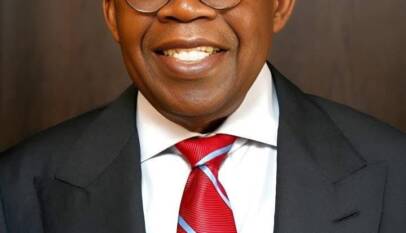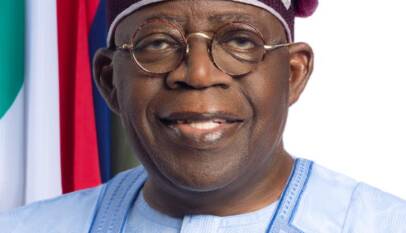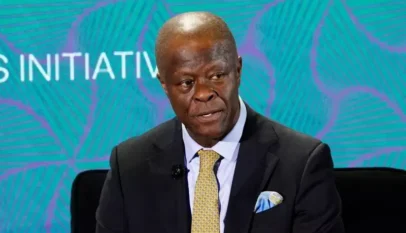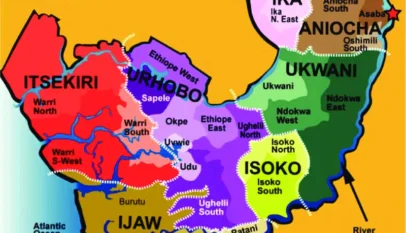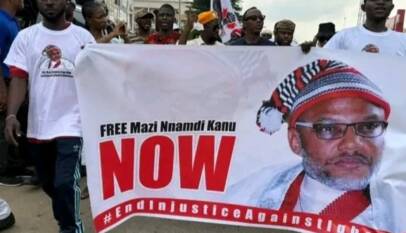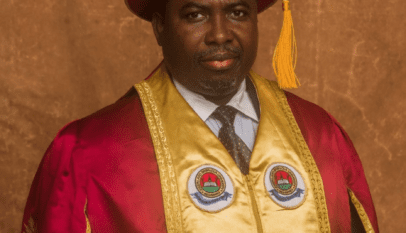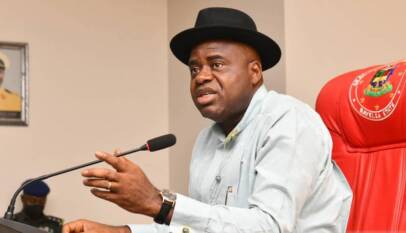Photo: Francia Marquez – harbinger of Nigeria-Colombia hope?
When the Vice President of Colombia, Francia Márquez, landed in Abuja on Saturday for a three-day official visit, it was not just another entry in the diplomatic diary. The symbolism of her presence, alongside her husband and a high-powered delegation of ministers, officials and business leaders, speaks to a relationship that has often lingered at the margins of both countries’ foreign policy, but now carries the potential to evolve into something strategic for Africa and Latin America alike.
She was received with ceremony at the Nnamdi Azikiwe International Airport by senior Nigerian officials — the Ministers of Innovation, Science and Technology, Women Affairs, and State for the Federal Capital Territory, as well as the Director-General of NEMA. Behind the handshakes and welcome banners lies a story of two nations with shared histories of resilience and a growing recognition that the time has come to deepen ties.
A History of Parallel Struggles
Nigeria and Colombia established diplomatic relations in the 1970s, but for decades their engagement remained limited, often overshadowed by stronger bilateral ties with Europe, the United States, and regional blocs. Trade between the two nations has been modest, mostly revolving around oil, coffee, and manufactured goods. Cultural exchanges have been sporadic, despite strong historical connections between Africa and Latin America rooted in the transatlantic slave trade.
Both countries also share a history of internal conflict and struggle. Nigeria has grappled with insurgency, militancy, and communal violence, while Colombia endured decades of armed conflict with guerrilla groups and drug cartels. In both cases, ordinary citizens have paid the price, yet both nations have also demonstrated resilience in preserving democracy and seeking peace. Analysts say this shared experience could form the basis of cooperation in security, peacebuilding, and community resilience.
Why This Visit Matters
The Márquez visit is widely seen as the most high-profile engagement between both countries in recent years. At the core of her mission are agreements on trade, agriculture, energy, manufacturing, women empowerment, and culture. Several Memoranda of Understanding (MoUs) are expected to be signed, formalising commitments that have long been discussed but rarely pursued.
For Nigeria, Colombia represents an entry point into Latin America — a region with over 650 million people and growing markets for African goods and services. For Colombia, Nigeria offers access to Africa’s largest economy, its most populous nation, and a central player in the African Continental Free Trade Area (AfCFTA).
“This is an important opportunity for Nigeria to diversify its international partnerships,” says Dr. Ifeanyi Okonkwo, a Lagos-based international relations scholar. “We tend to look too often towards Europe, China and the United States. But Latin America offers unique opportunities because the challenges and aspirations of its nations mirror ours. Cooperation with Colombia could create a bridge between Africa and South America.”
Geopolitical Implications
Beyond trade and business, the geopolitical implications of the visit are striking. Both Nigeria and Colombia are regional powers — one in West Africa, the other in Latin America. Together, they could push for stronger South–South cooperation and amplify the voice of the global South in international platforms such as the United Nations, World Trade Organization, and climate negotiations.
Energy and innovation also loom large on the agenda. As major oil producers, both countries face the challenge of transitioning towards renewable energy while maintaining economic stability. Collaboration in research, technology, and clean energy could help them manage this delicate balance. The inclusion of an Artificial Intelligence (AI) Summit in the visit’s programme highlights a willingness to move the relationship into future-facing industries, beyond traditional oil and agriculture.
Márquez herself adds a symbolic dimension. As Colombia’s first Afro-Colombian Vice President, her visit resonates in Africa. Her advocacy for women, the environment, and social justice ties neatly into Nigeria’s own struggles and aspirations. Analysts suggest her presence could spark new cultural and educational exchanges, strengthening soft power ties between the two regions.
Looking Ahead
While enthusiasm is high, the challenge will be implementation. Nigeria has signed dozens of MoUs with countries across the world, many of which have remained on paper. Experts caution that without clear timelines and follow-up mechanisms – the visit could become another symbolic gesture.
“There is always excitement when high-level visits take place,” says Dr. Patricia Agu, a foreign policy analyst in Abuja. “But what matters is whether ministries and agencies on both sides take the hard steps to translate commitments into results. If done properly, this partnership could unlock trade, create jobs, and strengthen our diplomatic leverage.”
A Moment of Opportunity
As Márquez and Vice President Kashim Shettima prepare for their plenary session and as business forums kick off in Abuja, the stakes are clear. The two countries stand at a crossroads: continue as friendly but distant partners or seize the moment to craft a robust relationship that connects Africa and Latin America more firmly.
If the agreements reached this weekend move beyond symbolism into sustained collaboration, the Márquez visit may be remembered as the moment Nigeria and Colombia discovered each other anew — not just as trading partners, but as allies in shaping a fairer, more balanced world order.
For now, Abuja is watching closely, hopeful that the conversations in meeting rooms will ripple outward into tangible benefits for citizens thousands of kilometres apart yet bound by a common pursuit of progress.


